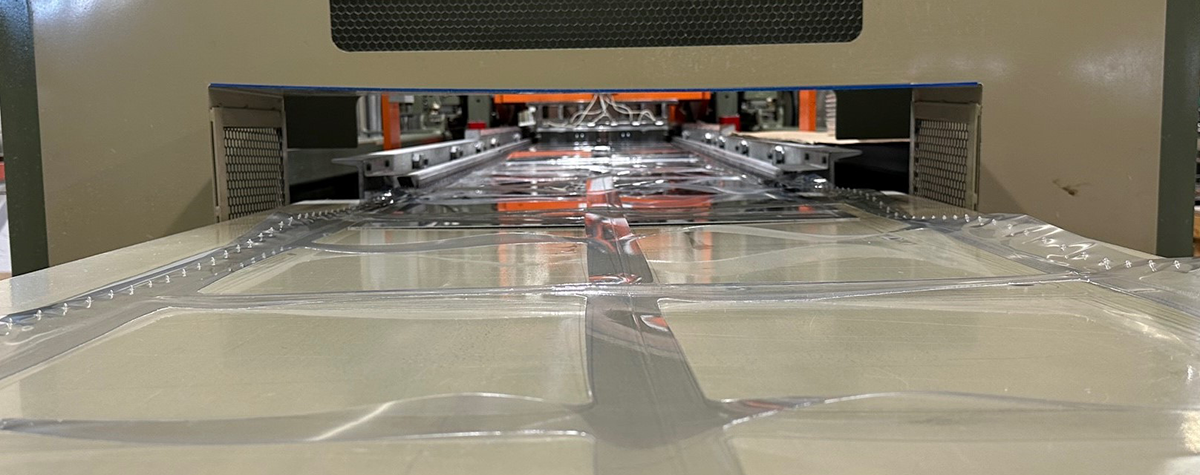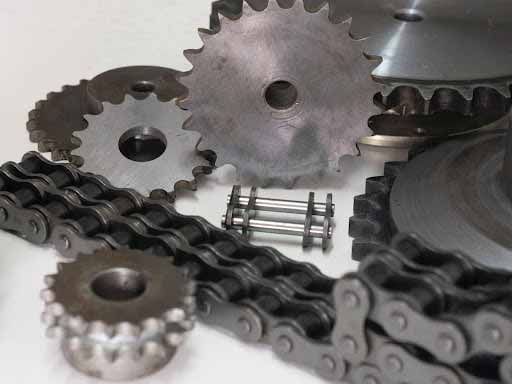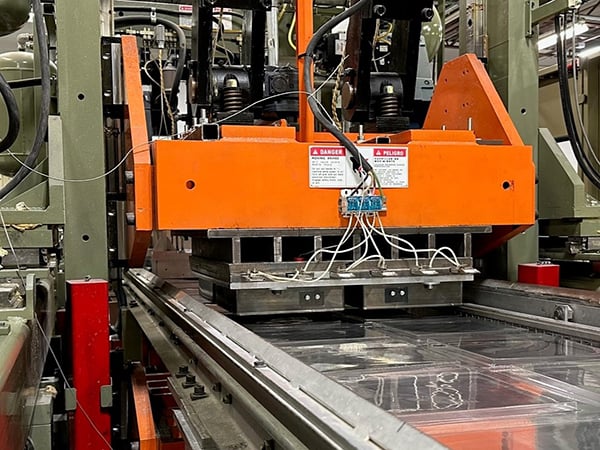
Custom Thermoformed Plastic Packaging Materials
EXPLORE THE FOOD SAFE, HEAT RESISTANT, ESD PREVENTION, AND OTHER MATERIALS THAT MAKE CUSTOM TRAYS SHINE
WHY SELECT CUSTOM PLASTIC TRAY MATERIALS?
The five qualities below are some of the most common requirements for custom tray materials. Depending on your application, you may need a thermoforming plastic with strengths in multiple areas.
ESD PREVENTION + ANTI STATIC MATERIAL
Electrostatic discharges can damage semiconductors or other sensitive components.
CHEMICAL RESISTANT MATERIALS
For trays that withstand corrosive materials, oils, grease, solvents, and other chemicals.
HEAT & COLD RESISTANCE
Extreme shipping temperatures or hot/cold factory environments should not impact durability.
UV RESISTANCE
For trays that will face extended sun/UV exposure while shielding sensitive components.
FOOD + MEDICAL GRADE TRAYS
When plastic materials must pass strict industry standards for cleanliness and safety.

THESE THERMOFORMING PLASTIC MATERIALS
GET THE JOB DONE
Our stock trays primarily use High Impact Polystyrene (HIPS) and Polyethylene Terephthalate (PET), which are versatile and strong. However, we have a wide variety of materials available for custom tray production.
The Ready-Made team is always ready to source the exact plastic tray material you need, based on the intended application. Don’t hesitate to reach out for custom tray projects and ask questions for an informed material decision. We handle all custom order requests promptly. Please note that less common custom materials requests may require a minimum order quantity.
Here’s a quick look at the qualities of the most frequently considered custom thermoforming plastic materials:
PLASTIC TRAY MATERIAL |
DESCRIPTION |
APPLICATIONS |
|
PET |
Polyethylene Terephthalate (PET), a form of polyester, is a lightweight option that’s widely used for plastic bottles and packaging. |
Most general-use tray applications, lightweight trays, high impact strength trays, lids |
|
PETG |
Polyethylene Terephthalate Glycol (PETG) is transparent, flexible, and chemically stable. It’s one of the most commonly recycled plastics. |
Most general-use tray applications, lightweight trays, high impact strength trays, lids, |
|
PETG Anti-Static |
This form of PETG is treated to reduce static buildup for safer transport of sensitive devices. |
ESD component trays for electronics, chips, circuit boards, does not slough conductive particles |
|
HIPS (also called “Styrene”) |
High Impact Polystyrene (HIPS) is inexpensive, lightweight, and strong with excellent durability and forming properties. |
Stock plastic shipping trays, medical trays, automotive trays, food and beverage trays, high impact strength trays |
|
Conductive Styrene |
Black carbon-loaded styrene plastic easily dissipates a static charge for safe transport of ESD-sensitive devices. |
ESD component trays for electronics, chips, circuit boards, sloughs carbon particles |
|
HDPE |
High Density Polyethylene (HDPE) is a chemical resistant material that resists most solvents, is durable, and is fairly rigid. |
Food packaging, trays exposed to chemicals, trays for prolonged storage |
|
HDPE Blue Anti-Static |
HDPE Blue anti static shipping trays don’t hold a charge for long and are safe for transporting ESD-sensitive devices. |
ESD component trays for electronics, chips, circuit boards, does not slough conductive particles |
|
HDPE Black Conductive |
Conductive plastic materials like this HDPE are black because they’re carbon-loaded. It will not create ESD while grounded. |
ESD component trays for electronics, chips, circuit boards, sloughs carbon particles |
|
Conductive ABS |
Combo of ABS and PVC that’s electrically conductive for static protection, strength, and dimensional stability. |
ESD component trays for electronics, chips, circuit boards, sloughs carbon particles |
|
ABS |
Acrylonitrile Butadiene Styrene (ABS) is stiff, lightweight, opaque, and typically exhibits high heat resistance and cold resistance (-4°F to 176°F, or -20°C to 80° C). |
Heat resistance, cold resistance, flame-retardant trays, high impact strength applications |
|
PP |
Polypropylene (PP) is chemical-resistant and rigid with good impact strength. It also performs well at higher temperatures. |
Chemical resistance, heat resistance, high impact strength applications |
|
PVC |
Polyvinyl Chloride (PVC) is a popular option for resistance to grease, heat, impact, and extreme environments, |
Chemical resistance, heat resistance, high impact strength applications, insulating applications for both trays and lids |
|
Anti-Static PVC |
Unlike conductive trays, the anti-static PVC material can be made clear or colored for safe and convenient shipping of electronic components and general small parts. |
ESD component trays for electronics, chips, circuit boards, does not slough conductive particles |
|
PC |
Polycarbonate (PC) is highly rigid, transparent, and customizable to different colors, with some heat resistance but low fatigue endurance. |
Clear packaging, heat resistance, trays that roughly simulate glass with much less weight |
|
ESD Polycarbonate |
This treated PC plastic thermoforming material is used for anti-static ESD prevention with the rigid clarity of polycarbonate. |
ESD component trays for electronics, chips, circuit boards, does not slough conductive particles |
“Our company has been doing business with Ready-Made since 2009, and we are very pleased with the working relationship we have developed through the years. Excellent customer service, fast responses, and product delivered as expected.”
"Great product and great customer service. I would recommend Ready-Made Plastic Trays to anyone that needs to ship out medical parts. Thank you Ready-Made."
"Great product and great customer service. I would recommend Ready-Made Plastic Trays to anyone that needs to ship out medical parts. Thank you Ready-Made."
READY-MADE
IN THE USA
All of our trays are 100% made in the USA and backed by exceptional customer service. You can count on quality and speed with domestic production. We also prioritize the sustainability of our trays, which are 100% recyclable.

